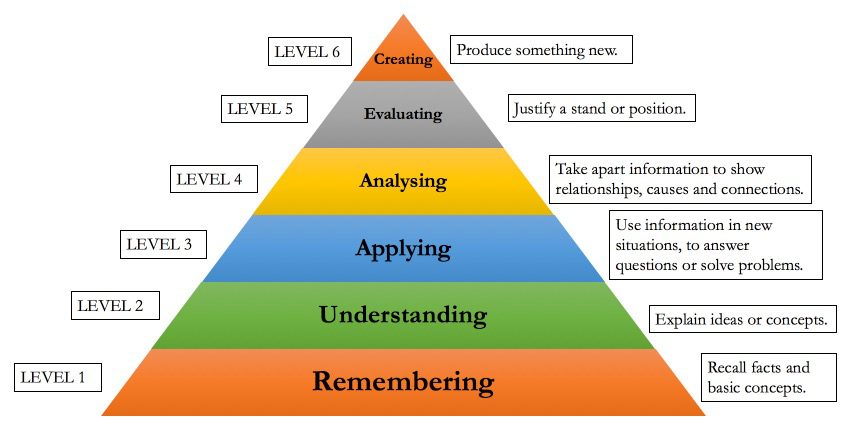Nestled in Brazil's diverse and vibrant landscape, we are lucky at The British School of Rio de Janeiro, to have such an engaging stage in which to deliver our International Primary Curriculum (IPC). As the Upper Primary Coordinator, I have observed the IPC to serve as a versatile framework that not only encourages active learning but also nurtures reflective learners. This aligns well with modern pedagogical practices, as I discuss in my blog, Technology for Learners—a platform I originally created to continually refine my teaching practice while staying current with curriculum and pedagogical changes. In this article, therefore, I wish to share how our school’s pedagogy has been positively influenced by the IPC.
Guiding Students Towards Reflective Learning with the IPC
One of the aspects I most appreciate about the IPC framework is that it places a strong emphasis on guiding students to become reflective learners. Through the structured approach of the IPC Learning Process and its emphasis on Learning Goals, we have developed more of a culture of self-reflection among both our teachers and students.
In fact, we kickstart the academic year by teaching the Brainwave unit to all year groups, which helps children across the school to reflect more about how they learn and what things they can do to improve their learning. Having this unit at the beginning of the academic year creates a foundational understanding of how learning happens. Brainwave demystifies the learning process for students, inviting them to think about how they acquire new knowledge and what strategies can make this acquisition more effective. (Incidentally, for those who may find the extra resources useful, I have collated our Brainwave planning and resources for MP3 here, which is freely accessible via a dedicated Google Drive folder.)
Students immersed in STEAM activities during their Brainwave unit, sparking curiosity and laying the foundation for lifelong learning.
Across all of the units, through "Looking for Learning" questions, for example, we also regularly challenge our students to delve deeper into the 'why' and 'how' of their learning experiences. We use questions like "Why are you learning this?" or "How will you know if you have been successful in this learning?" to assess students’ knowledge and understanding while helping to ignite their own curiosity. This is not merely an academic exercise; it's an important life skill that prepares students for an increasingly complex world.
Using Bloom's Taxonomy
In particular, the IPC has led us to look more closely at Bloom's Taxonomy, a framework that categorises cognitive skills into six different levels, starting with basic recall (Remembering) and moving up to complex tasks like evaluation (Evaluating) and creation (Creating). In educational settings, it serves as a guideline for teachers to structure lessons that gradually engage students in higher levels of cognitive thinking.

The IPC's focus on reflective learning inherently asks students to engage in the higher levels of Bloom's hierarchy. When students are prompted to reflect on why a particular lesson is significant or how it builds on their previous knowledge, they are participating in analysis and evaluation—two of the higher cognitive skills on Bloom’s ladder.
The reflection demanded by IPC exercises links with Bloom's categories of 'Analysing,' 'Evaluating,' and even 'Creating.' Students are not just rote-learning facts during their IPC lessons; they are actively synthesising information, critiquing their own understanding, and even generating new ideas based on their reflections.
Experiential Learning: The Climate Control Unit
As just one example, during the Climate Control unit, our Class 4 students participate in a trip to Paraty, a historic town, situated along the lush green coast of Rio de Janeiro, which serves as an ideal location for hands-on learning experiences. One of the highlights of this trip is for students to go hiking and kayaking in the ecosystem of Saco do Mamanguá. With its mangroves, diverse marine life, and tropical forests, this area serves as a wonderful Entry Point for the Climate Control unit while facilitating students’ learning of how climate factors can influence local ecosystems.
Drone-captured aerial view of our students kayaking in Saco do Mamanguá.
Throughout the trip, students are asked various questions to stimulate their thinking like, "How do you think the climate affects the ecosystem of Saco do Mamanguá?" or "Can you identify human impacts on this delicate environment?" Following the IPC framework, these reflection questions serve as learning catalysts that prompt students to engage in higher-order cognitive skills. The question about climate’s effects on the ecosystem, for instance, encourages analysis, nudging the students to connect the dots between their observations and their academic knowledge. When they consider human impacts, they are performing an evaluation, one of the higher levels of cognition in Bloom’s Taxonomy.
Trips like this, and, in fact, all hands-on learning activities that we facilitate at school, provide much more dynamic lessons where the IPC's emphasis on reflection and Bloom's levels of cognition intersect. The IPC enables students to not just be observers but also active analysts and evaluators, tasked with synthesising real-world observations with academic understanding.
Conclusion and Further Reading
My observations strongly reaffirm that the IPC is more than just a curriculum; it is an educational philosophy that aligns with the complex, interconnected realities of our world. By capitalising on questioning techniques and experiential learning, the IPC paves a road for students that is brimming with opportunities for introspection and real-world application. For those interested in delving deeper into modern teaching methodologies and how they align with the IPC, I invite you to explore the Education section of my blog, Technology for Learners. Here you will find plenty of resources to further refine your teaching practice.
Learn more about the International Primary Curriculum


